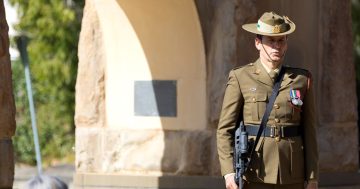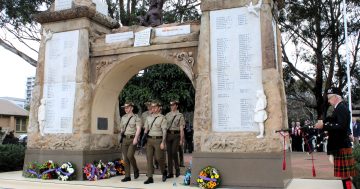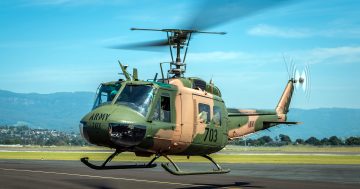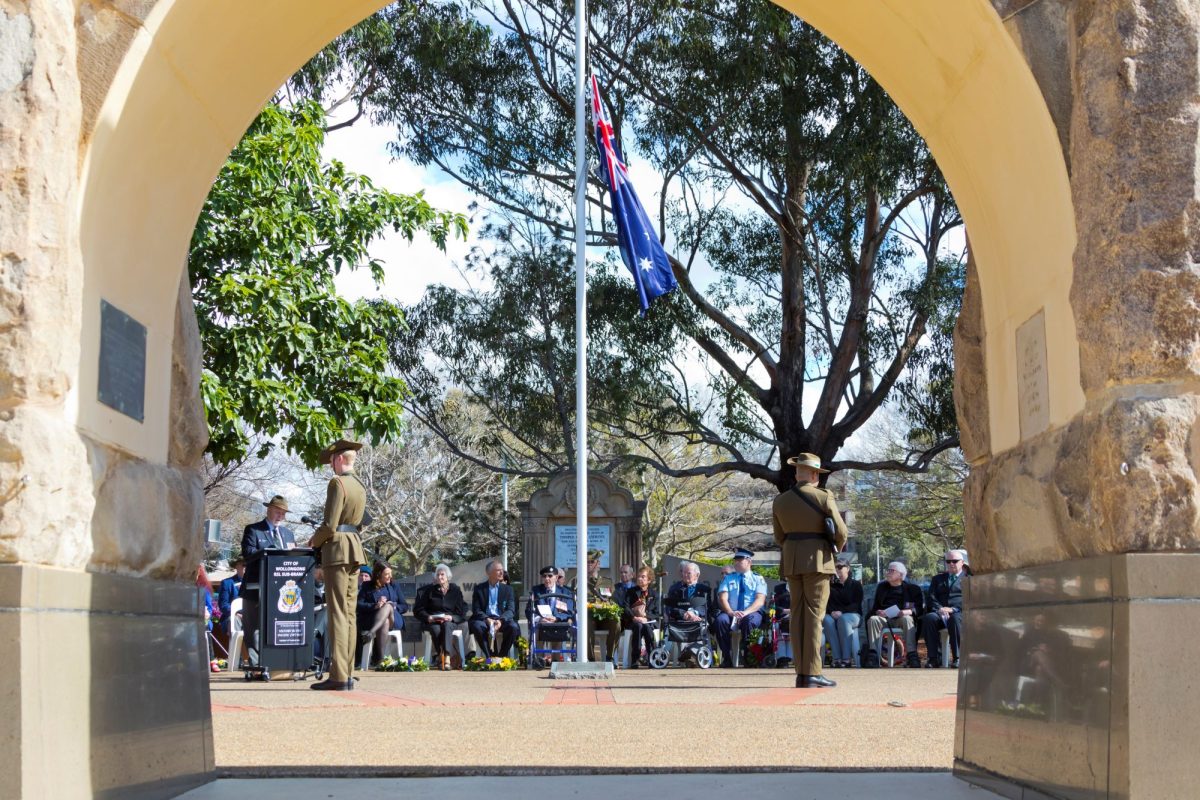
Victory in the Pacific Day was commemorated at the Wollongong Cenotaph. Photos: Nardia Guillaumier.
Wollongong’s five remaining World War II veterans were honoured at a commemorative service to mark Victory in the Pacific Day (VP Day) this week.
Formerly known as Victory over Japan Day, VP Day is an annual service held on 15 August to mark Japan’s acceptance of the Allied demand for unconditional surrender on 14 August 1945, effectively bringing an end to World War II.
The City of Wollongong RSL Sub-branch service was held at the Cenotaph in MacCabe Park.
Sub-branch secretary Peter Lipscomb said the ceremony was particularly dedicated to the recognition of our five remaining veteran members, who range in age from 98 to 101 years young.
“For Australians, VP Day holds immense importance, particularly for the generation that endured the hardships of the Second World War, including our esteemed veterans and the families of those who never returned,” Peter said.
“It symbolises the triumph of freedom over grave threats and marks the conclusion of a period in our nation’s history when Australia faced the vulnerability of Japanese invasion.
“However, the significance of VP Day extends beyond the memories of those directly involved in the conflict.
“It serves as a reminder of the remarkable human crisis that shaped our world and continues to influence our society today.
“It is an opportunity for us to reflect on the noble values they fought for during those trying times, which continue to shape our nation and its principles today.”
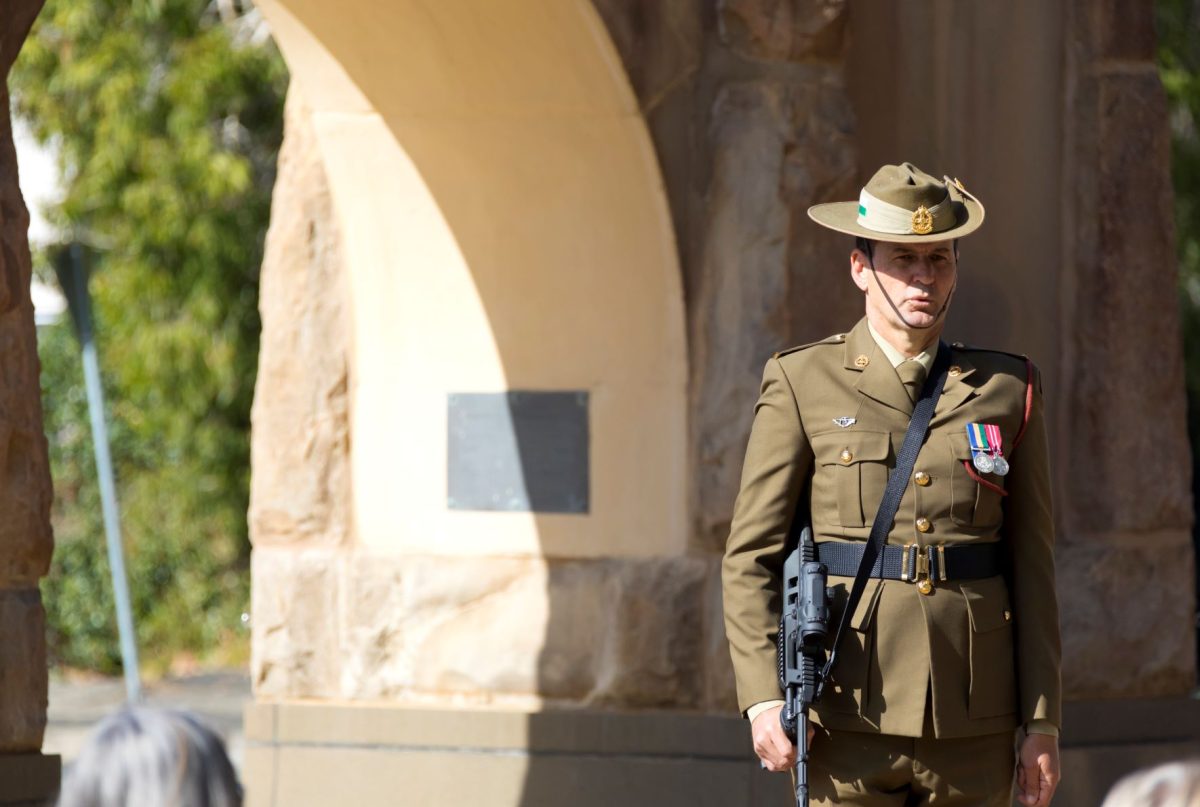
A solemn moment during the ceremony.
NSW Minister for Veterans David Harris, who attended the service at the Sydney Cenotaph, alongside RSL NSW President Ray James and members of the veteran community, paid tribute to the service and sacrifice of all World War II veterans.
“It’s a date we will never forget,” he said.
“Today on VP Day we come together to remember all those men and women who served – in the ranks of our Navy, Army, Air Force, the Merchant Navy and nursing – and thank them for their sacrifices, in conflict and in captivity.
“We honour those who served, and the 39,000 Australians who made the ultimate sacrifice for the cause of peace and freedom.”
Australian forces were engaged in campaigns across the Pacific – in New Guinea, Bougainville, New Britain, Borneo, and in the Philippines – and Australian prisoners of the Japanese were spread throughout Asia.
Australia had been at war for five years, 11 months and 11 days when on 15 August 1945, Japan accepted the Allied Nations’ terms of surrender and Australia’s prime minister, Ben Chifley, confirmed the war was over.









